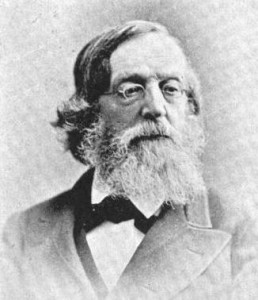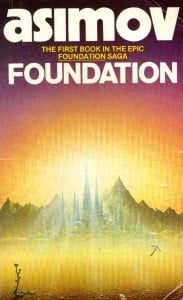As someone who spends a lot of time doing research, I’ve become a huge fan of Amazon’s recommendation system (“Customers who bought this item also bought…”). It’s a great way to simulate the experience of browsing through a bookstore or a library and stumbling across an item you didn’t know you needed until you saw it (which happened most recently in our local library when I came across Jeremy Scahill’s excellent book Dirty Wars.) I can’t tell you how many books I’ve purchased (or at least added to my wish list) as a result of this service.
It happened to me again yesterday when I purchased a Kindle version of Slavoj Zizek and Boris Gunjevic’s book God in Pain: Inversions of the Apocalypse. I’ve been meaning to read Zizek for a while, and seeing as I’d just read this article, which quoted one of Zizek’s essays from the book, in which he addresses mimetic theory, I figured now was the time.
Just as I was about to check out, I happened to glance at the bottom of my screen and saw a recommendation for the book Fighting Words: The Origins of Religious Violence by Hector Avalos. The title piqued my interest, because I’m currently developing a documentary that looks at the origins of religious (and non-religious) violence through the lens of mimetic theory. So I thought I’d give it a look.
Perhaps revealing a little too much, the book’s description summarizes Avalos’s main argument, beginning with the economic premise that violence is a product of real or perceived scarcity of resources (a view that Pope Francis seems to endorse). Then he goes on to argue that religion creates scarcity through illusory or unverifiable criteria. Namely, by claiming to offer exclusive access to 1) sacred spaces, 2) sacred texts (revelation), 3) sacred status (membership in the “chosen” people) and 4) salvation (available only to the chosen).
Of course, another premise he sneaks in there is the assumption that all religions are based on illusory or unverifiable assumptions. Therefore, “religious violence is the most unnecessary violence of all, seeing as the scarce resources over which religious conflicts ensue are not actually scarce or need not be scarce.” But if we set that point aside, I think he may be onto something.
That “something” becomes a bit clearer when you combine Avalos’s argument with something Brian McLaren wrote on his blog recently in response to someone who accused him of pluralism–the idea that all religions are essentially the same. In reply, Brian lays out four options:
1. All religions are completely true.
2. All religions are completely false.
3. One religion is completely true and others are true wherever they agree with it.
4. All religions are partially true and partially false.I find #1 impossible since different religions contain many contradictions. I find #2 unlikely and incredible. That leaves #3 and #4. A big problem with #3 is that you have to ask, “Whose version of which religion?” For example, if you want to claim Christianity is completely true, you have to ask, “Pope Urban II’s version of Catholicism?” or “Benny Hinn’s version of Pentecostalism?” or “C. S. Lewis’ version of Protestantism?” or “Leo Tolstoy’s version of Russian Orthodoxy?” or … you get the point.
Far be it from me to correct Brian, but I see a fifth option as well: One religion (my religion) is completely true, and all other religions are completely false. Worse, they are satanic counterfeits introduced by demonic forces to deceive the masses into abandoning the one truth faith.
It seems to me that this fifth option is the most problematic, because it is most likely to lead to the [perceived] problem of scarcity and violence that Avalos outlines. And in case you think this mindset is far-fetched, you probably haven’t spent much time in the Evangelical and particularly the Pentecostal trenches. Even Avalos demonstrates a version of this position by assuming all religious views are illusory and unverifiable. According to this mindset, not only does my religion have an exclusive claim on truth, the only goal of other religions is to eradicate mine. Therefore, we need to get them before they get us. Hence, the adoption of “hostile religious identities,” which Brian does such a great job of articulating in his book Why Did Jesus, Moses, the Buddha, and Mohammed Cross the Road?
So we have the problem, or at least the perceived problem, of religious scarcity. What’s the solution? Apparently, it has to involve the abandonment of exclusivity in some fashion. If we want to avoid violence, it seems we must be willing to surrender our exclusive claims to sacred spaces, texts/revelations, status, and/or access to salvation. Remove the perception of scarcity, and the violence should disappear along with it.
However, as Brian (and his interlocutor) argue on his blog, this can’t simply be a matter of saying all religions are essentially the same or smoothing out the differences between various faiths (or different expressions of the same faith) as if they were inconsequential. Speaking in economic terms, this would be the equivalent “religious socialism,” with our current exclusivist model being the equivalent of “religious capitalism.” As everyone knows, even within a supposedly flat socialist system, sooner or later someone has to take charge. In the name of equality, an individual or group is granted the exclusive privilege of imposing his/her/their agenda upon the masses. So we are right back to the same problem only worse, because the unverifiable truth claims of the elite have been legitimized not through evidence and arguments but through force of law.
Furthermore, two or more contrary or contradictory truth claims cannot possible be true. Therefore, if religions claim to offer something along the lines of a scientific hypothesis for how the universe came to be and how we are to understand our place in it, it seems perfectly acceptable to evaluate those competing claims against our experience of reality in an effort to determine which–if any–offer the clearest insights.
Most importantly, however, it’s these very differences between various faiths (and expressions of those faiths) that form the basis of identity. Therefore, eradication of difference (exclusivity) would be tantamount to eradication of the self.
Then again, would that be such a bad thing? Consider these words from Richard Beck:
One of the things I’ve learned from writers like James Alison, a theologian deeply informed by Rene Girard, is how rivalry is intimately associated with our self-concept. Specifically, most of us create, build up and maintain our self-esteem through rivalry with others. Our sense of self-worth is created and supported by some contrast and opposition to others. I am a self in that I am over and against others. Better. Smarter. More righteous. More successful. More authentic. More humane. Less hoodwinked. More tolerant. More insightful. More kind. More something.
In short, selfhood is inherently rivalrous. Rivalry creates the self. Rivalry is the fuel of self-esteem and self-worth.
Which means that the self is inherently violent. The definition of the self is an act of aggression and violence. To be “Richard Beck” is to engage in violence against others, if not physically than affectionally. From sunrise to sunset every thought I have about myself is implicated in acts of comparison, judgement, and evaluation of others, allowing me to create a sense of self and then fill that self with feelings of significance and worthiness.
What Richard seems to be saying is that basing the self on rivalry turns identity into a scarce resource. The only way for me to have an identity is to take away or at least diminish yours. The more people I eclipse through my abilities, achievements, reputation, etc., the stronger my sense of self, but the more people have to pay for it by being reduced to collateral figures, background players, nameless, faceless masses who stand in awe of my exploits.
Considering all of this, it seems to me that what we need to eradicate is not the self but our tendency to form our identity (as individuals and as groups) at the expense of others. As long as we base the our identity on scarcity, it will lead naturally to rivalry. As I noted above, according to Avalos, this seems to necessitate abandonment of any claims to having exclusive access to the truth. But what if exactly the opposite is true?
Think about it: The only legitimate claim to exclusivity we can make is our individual perspective on the world. I see and experience the world one way (as a Canadian, Caucasian, 42-year-old, balding, heterosexual, husband and father of four, etc.), Brian sees the world in another way, Richard in his own way, and so on. Our views and experience may overlap at key points, but they will never be completely identical. As exclusive as our individual experience of the world is though, the one thing we have in common–and the first thing all three of us will readily admit–is that our perspective on the world is necessarily limited. If this is true of individuals, it seems to me it must also be true of organizations, communities, cultures, states–even religions.
Therefore, as Brian also argues in his blog post, rather than claim to know the truth with perfect accuracy, a proper stance toward competing truth claims should include:
– humility of heart and mind,
– a childlike desire to learn,
– love for neighbor, stranger, outcast, and enemy,
– and a sincere hunger and thirst for justice,
because, as Paul said, “we know in part.”
Getting back to Avalos’s original argument, it seems scarcity isn’t the real problem after all. In fact, scarcity is a gift, because if all of us saw and experienced the universe in exactly the same way, our perspective would be necessarily impoverished. So rather than seek to eradicate difference by trying to enforce some sort of homogeneity, difference should be embraced, celebrated and investigated to determine how the experience of others might shed light on our own and vice versa.
The real problem is when we take our perspective on the truth and mistake it for the whole truth, and then seek to colonize the world by imposing it on others–appended by threats of eternal damnation if they fail to acknowledge the supremacy of our beliefs. (You knew I’d bring this discussion back around to hell sooner or later…)
In short, exclusivity, yes, imperialism, no.











